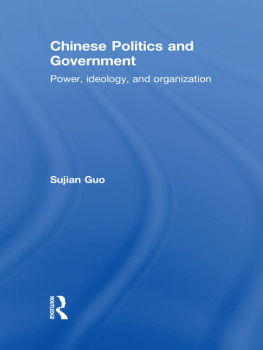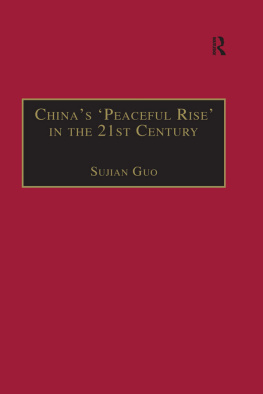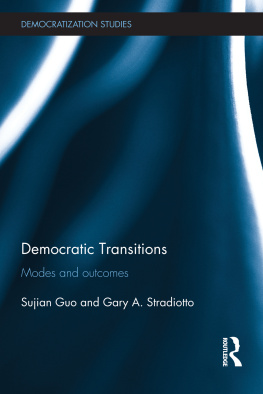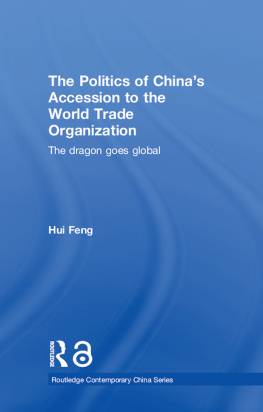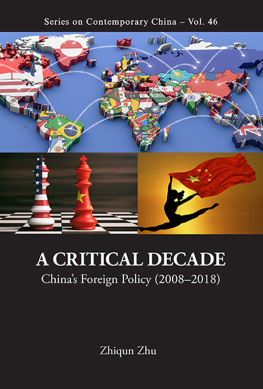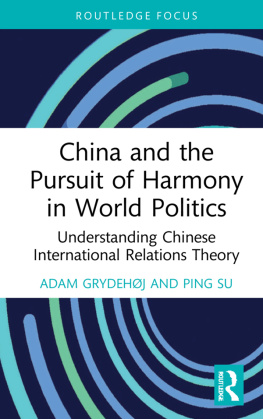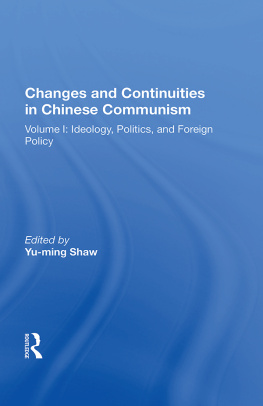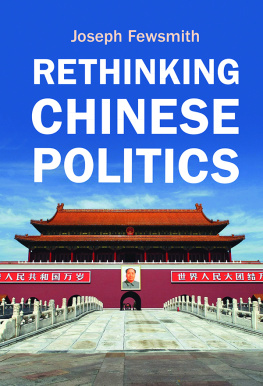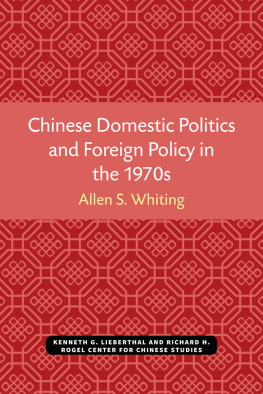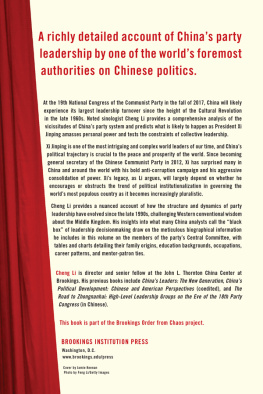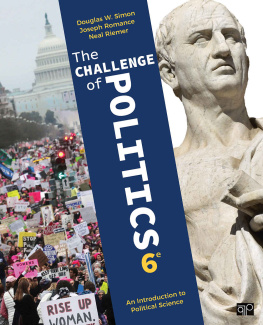Sujian Guo - Chinese Politics and Government: Power, Ideology and Organization
Here you can read online Sujian Guo - Chinese Politics and Government: Power, Ideology and Organization full text of the book (entire story) in english for free. Download pdf and epub, get meaning, cover and reviews about this ebook. year: 2012, publisher: Routledge, genre: Politics. Description of the work, (preface) as well as reviews are available. Best literature library LitArk.com created for fans of good reading and offers a wide selection of genres:
Romance novel
Science fiction
Adventure
Detective
Science
History
Home and family
Prose
Art
Politics
Computer
Non-fiction
Religion
Business
Children
Humor
Choose a favorite category and find really read worthwhile books. Enjoy immersion in the world of imagination, feel the emotions of the characters or learn something new for yourself, make an fascinating discovery.
- Book:Chinese Politics and Government: Power, Ideology and Organization
- Author:
- Publisher:Routledge
- Genre:
- Year:2012
- Rating:3 / 5
- Favourites:Add to favourites
- Your mark:
Chinese Politics and Government: Power, Ideology and Organization: summary, description and annotation
We offer to read an annotation, description, summary or preface (depends on what the author of the book "Chinese Politics and Government: Power, Ideology and Organization" wrote himself). If you haven't found the necessary information about the book — write in the comments, we will try to find it.
Over the past two decades, Chinas political reforms, open-door policy, dramatic economic growth, and increasingly assertive foreign policy have had an unprecedented regional and global impact. This introductory textbook provides students with a fundamental understanding of government and politics in China as well as the conceptual ability to explore the general patterns, impacts, and nature of continuities and changes in Chinese politics. Further, it equips students with analytical frameworks by which they can understand, analyse and evaluate the major issues in Chinese politics, including:
- The basic methodologies and theoretical controversies in the study of Chinese politics.
- The major dimensions, structures, processes, functions and characteristics of the Chinese political system, such as ideology, politics, law, society, economy, and foreign policy.
- The impact of power, ideology, and organization on different spheres of Chinese society.
- The structure, process, and factors in Chinese foreign policy making.
- Whether China is a strategic partner or potential threat to the United States.
By examining contending theoretical models in the study of Chinese politics, this book combines an essentialist approach that keeps focus on the fundamental, unique and defining features of Chinese politics and government with other theoretical approaches or analytical models which reveal and explore the complexities inherent in the Chinese political system.
Extensively illustrated, the textbook includes maps, photographs and diagrams, as well as providing questions for class discussions and suggestions for further reading. Written by an experienced academic with working knowledge of the Chinese Government, this textbook will provide students with a comprehensive introduction to all aspects of Chinese Politics.
Sujian Guo: author's other books
Who wrote Chinese Politics and Government: Power, Ideology and Organization? Find out the surname, the name of the author of the book and a list of all author's works by series.

